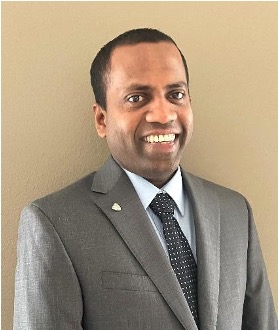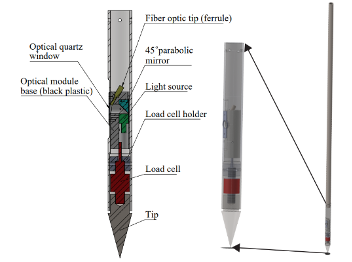ABE Welcomes Dr. Nuwan Wijewardane
March 1, 2021
Dr. Nuwan Wijewardane, originally from Sri Lanka (a beautiful tropical island in the Indian Ocean), envisioned his future career as an academic from the time he started his undergraduate career at University of Peradeniya, working on a B.S. in Agricultural Technology and Management while he tutored his classmates. Fueled by the desire to learn more and conduct research, he joined the University of Nebraska-Lincoln in 2014 to start his M.S in Biological Systems Engineering under the direction of Dr. Yufeng Ge, a former MSU graduate student himself. After completing his M.S. in 2016, Dr. Wijewardane immediately started his Ph.D. in Biological Engineering in the same lab. After graduation in 2019, he stayed in Dr. Ge’s lab as a Post-Doctoral research associate until early 2021.
During his undergraduate, and graduate studies as well as his post-doctoral work, he had many opportunities to be involved in collaborative research that focused on developing sensors, modeling, spectroscopy, phenotyping, machine learning and deep learning. For his M.S. program, he explored the potential of machine learning techniques to calibrate models on spectral libraries to derive soil properties with higher accuracy. Dr. Wijewardane also investigated the effect of moisture on soil reflectance spectra and methods of removing its effect.

For his PhD project, he designed and developed a visible and near-infrared (VisNIR) based multi-sensing penetrometer which can be used to estimate soil properties in a vertical profile based on reflectance spectra. The system consisted of many sensors - load cells, GPS, ultrasonic depth sensor, and optoelectronic sensors, and it was able to monitor, control and record all the data in a computer with LabVIEW software. The penetrometer was attached to a hydraulic probe mounted on a field vehicle for operation.
The field testing of the system demonstrated its ability to derive multiple soil properties including total carbon, total nitrogen, texture, and bulk density. During his post-doctoral work, he focused on high resolution vertical soil property sensing and 3D soil property mapping at the field scale.
“As a new faculty member, I hope to actively engage in teaching, mentoring students, and research to produce new knowledge to be disseminated,” he notes. “I would like to involve novel techniques such as spectroscopy, machine learning and deep learning, GIS, variable rate technologies and the “Internet of Things” (IoT) to conduct research in precision agriculture.” Dr. Wijewardane believes that plant and animal production can be equipped with new sensing technologies and smart systems for precision farming to increase crop yield. Achieving this will demand the use of new sensing and control technologies under a centralized smart system to acquire data, process it, make decisions, and control field-based systems as needed.
Category: Announcement, Faculty, News

